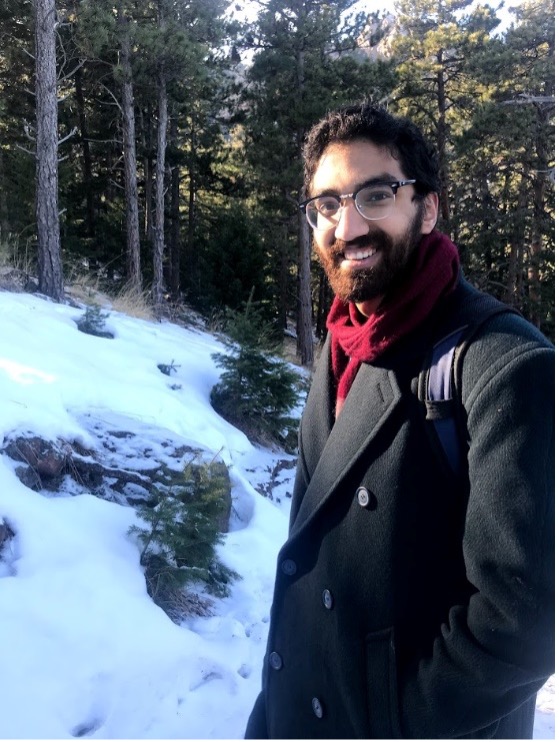
Biography
Yasser Ali Nasser is a PhD candidate in the Department of History at the University of Chicago. His research focuses on the ways in which anti-imperialist networks in China, India, and Japan used “Asia” to critique the international system in the early Cold War.
Dissertation: Creating New Asia: Sino-Indian Friendship and the Promise of Asian Solidarity in the Early Cold War, 1947-1962
My dissertation, “Creating New Asia: Sino-Indian Friendship and the Promise of Asian Solidarity in the Early Cold War, 1947-1962” highlights how the Cold War produced ‘friendship’ as a new political paradigm in India and China. Prevailing views of Sino-Indian relations in this period characterize ‘friendship’ as vacuous and unimportant. By treating it seriously as a contingent form of politics, I show how state and private actors in both countries defined friendship as a uniquely Asian mode of solidarity that promoted mutual respect in service of the regional priorities of nation-building and anti-imperialism. Advocates of Sino-Indian friendship emphasized that it accepted adopting different solutions to shared ‘Asian’ problems and could act as the framework for a New Asia based on mutual learning and coexistence instead of colonial paternalism and bloc conflict, thus ensuring regional peace at a time of rising global tensions. Consequently, friendship’s invocation of a regional struggle convinced different publics in China and India that successful nation-building at home required resolving Cold War crises abroad, and vice-versa. Sino-Indian friendship inflected postcolonial nationalism with transnational urgency; being Indian or Chinese also meant being Asian.
In tackling Sino-Indian friendship in such a comprehensive manner, this dissertation utilizes material from archival holdings in United States, the United Kingdom, India, China, Taiwan, Japan, Singapore, and Malaysia; this material is in Hindi, Urdu, Mandarin, Japanese, and English. This ambitious scope reflects friendship’s own ambitions to transform Asia into a vehicle for transforming the international order. Acknowledging that ambition requires a truly transnational research agenda capable of uncovering the diverse ways in which state and non-state advocates of friendship were able to actualize its rhetoric through marshalling domestic and international support.
This dissertation thus tells a history of the Cold War through the novel forms of politics that people embraced to resist it. Instead of accepting that the Cold War narrowed political visions, I propose that it also created the conditions for political projects that sought to expand the limits of what was possible. Sino-Indian friendship and the dreams of a New Asia that it inspired across the world was one such example, and by excavating it I hope to showcase the intimate relationship between nationalism and internationalism in the postcolonial world.
Recent Research / Recent Publications
How did threats that the Cold War would shatter the dreams of a postcolonial world free of domination by either superpower prompt resistance in China and India in the 1950s? My dissertation argues that Sino-Indian friendship stemmed from a belief in ‘New Asia’: a political universalism that aimed to address the legacies of colonialism domestically and internationally by advocating for friendship as a viable alternative to bloc politics. For the Indian and Chinese states, Asian friendship meant struggling against renewed imperialism and interventionism, while accepting the possibility for different political and ideological approaches to that struggle. Thus, New Asia offered a system of international solidarity in stark contrast to the ideological blocs espoused by the superpowers. Inspired by this, disparate groups of Buddhists, feminists, trade unionists, peace workers, and land activists localized state rhetoric of friendship in New Asia to bolster their own specific political objectives and galvanizing their communities. By developing friendship as a set of practices including marches, signature campaigns, festivals and delegations, these publics staked out their own contributions to ensuring the success of New Asia. Thus, Indian and Chinese activists imbued their emergent national identities with an explicitly transnational one and preached the virtues of New Asia throughout the region. Consequently, the practices of Sino-Indian friendship inspired new forms of solidarity in Japan, Southeast Asia, the United States, and beyond. Tracing the rise and fall of New Asia, this dissertation offers a rich history of friendship as a new mode of politics in the decolonizing world.
 THE UNIVERSITY OF CHICAGO
THE UNIVERSITY OF CHICAGO

